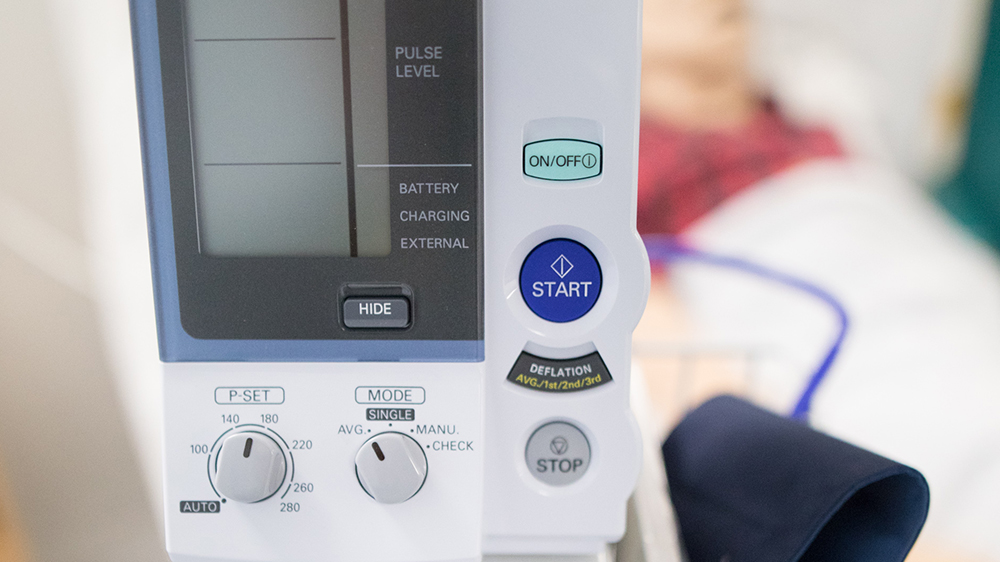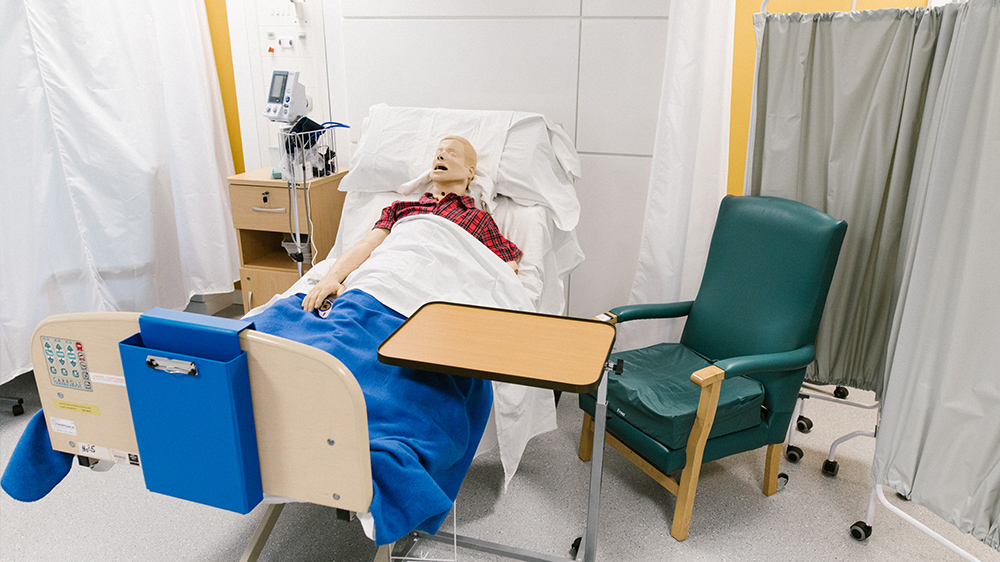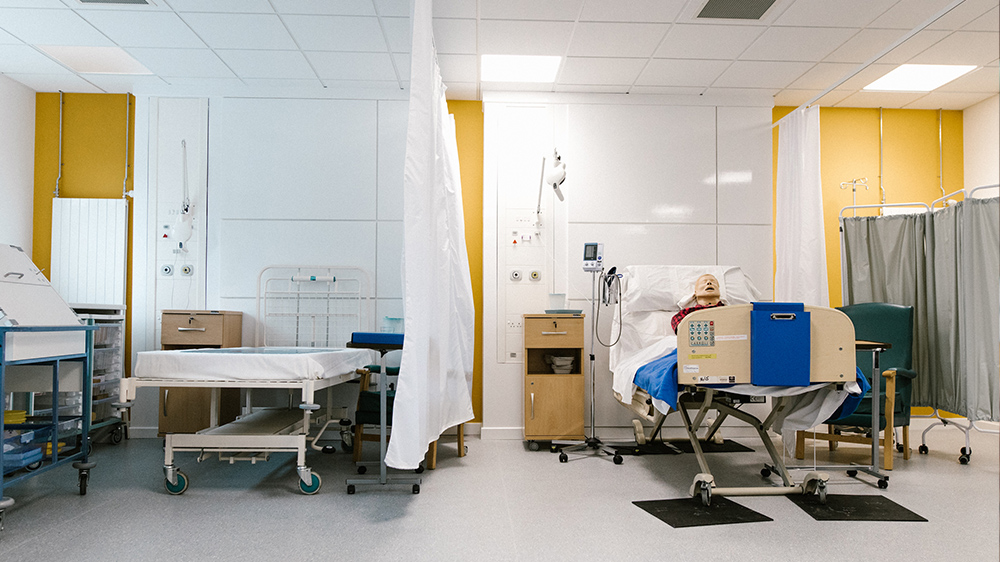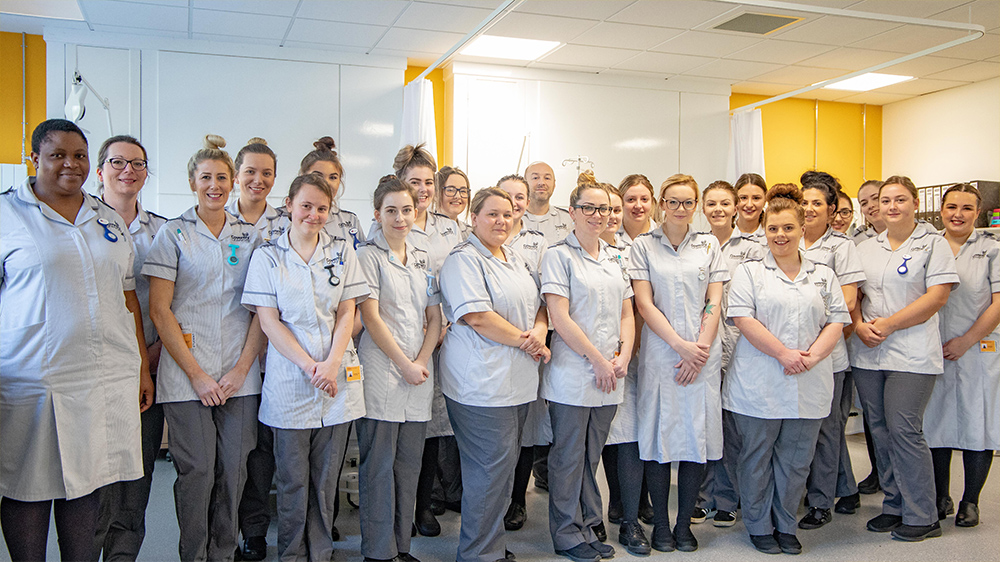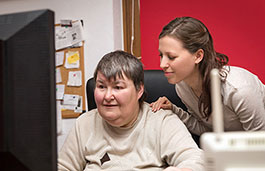Search
Adult Nursing BSc (Hons) with foundation year
Study level: UndergraduateProfessionally Accredited Programmes

This degree combines theoretical and practice-based learning to lead you to professional registration and a rewarding career as an adult nurse.
Course features
Year of entry
Location
CU Scarborough (Scarborough)
Study mode
Full-time
Duration
4 years full-time
UCAS codes
B7DF
Start date
January 2026
March 2026
Course overview
Our degree with foundation year could be the stepping stone you need to achieve your goals. The foundation year aims to prepare you for degree-level study and is a great way to build the confidence, skills and knowledge needed to succeed on your degree course.
Adult nurses work to improve people’s lives by offering comprehensive physical, emotional, mental and social support to people of all ages. This course aims to equip you with the knowledge, skills and behaviours required to independently address the diverse health and care needs of individuals across the lifespan.
Foundation year
The foundation year course helps you develop the necessary skills for degree-level study. In addition, you will also explore fundamental knowledge in areas such as anatomy, physiology and pathology, professional practice and approaches to health and wellbeing.
Degree
- Successful completion of this course makes you eligible to apply for professional registration as an Adult Nurse with the Nursing & Midwifery Council (NMC) (please see Accreditation section for more information).
- Gain the skills to deliver professional, impactful, evidence-informed care across a range of dynamic and diverse healthcare environments.
- Learn to collaborate and thrive as an adult nurse across and within multidisciplinary teams to coordinate safe, evidenced-based care delivery.
- Study one module at a time, with five weeks of learning followed by one week of assessment per module.
- All eligible learners on this course can apply for a minimum payment from the government of £5,000 per year. You can apply for additional payments if you incur childcare costs6.
- 50% of your learning will take place in diverse practice-based learning environments where you will apply your theoretical knowledge to the real world2,5.
Why you should study this course
If you are compassionate, enthusiastic and committed, we can support you in developing the skills to deliver professional, evidence-informed care that truly impacts people’s lives.
If you are compassionate, enthusiastic and committed, we can support you in developing the skills to deliver professional, evidence-informed care that truly impacts people’s lives.
Foundation year
- Supports you to gain the academic skills required for degree-level study.
- Provides a grounding in key areas of anatomy, physiology, health and wellbeing.
Degree
- Our approach supports you to develop a strong sense of professional identity and accountability as an adult nurse from day one.
- Develop your confidence and skills in preparation to lead, influence and supervise others.
- Delivered by a team that includes highly skilled, knowledgeable, nursing and allied health professionals.
- Develop your digital fluency, curiosity, critical and reflective thinking.
- Access to success coaches, placement supervisors and specialist support for mathematics and academic writing4.
Studying nursing at CU Scarborough
Gain the skills and experience to transform lives, communities and the future of healthcare delivery. We aim to empower you to become a stand-out healthcare professional, capable, competent and confident in your field and role within the wider healthcare team.
While continuously developing your sense of professional identity as an adult nurse from day one, you'll learn in an environment that puts inclusivity, diversity and dignity at its heart.
Coventry University ranked No.11 for General Nursing
Guardian University Guide 2025
Accreditation and professional recognition
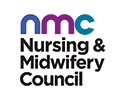
Nursing & Midwifery Council
The Adult Nursing BSc (Hons) programme is approved by the Nursing & Midwifery Council (NMC) for the 2025-26 intake.1
CU Scarborough celebrates success of Nursing graduates
87 per cent of 2024 Nursing graduates secured employment locally before they even graduated.
Find out more about this achievement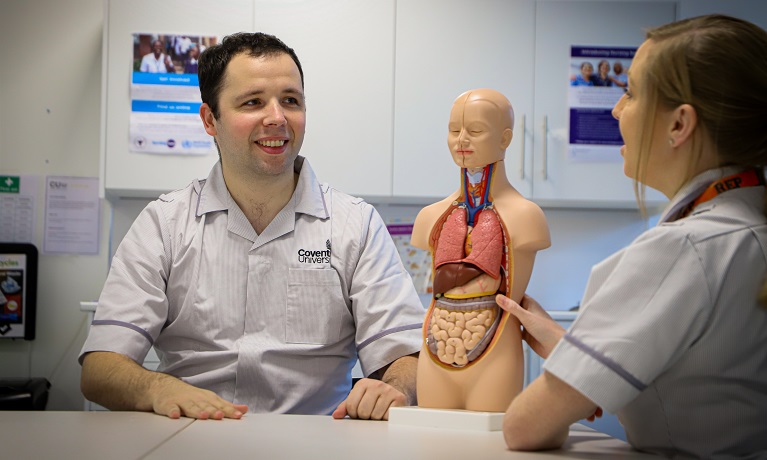
What you'll study
The foundation year offers an introduction to your chosen subject and supports you to develop the skills required for degree-level study.
- practical skills relating to assessing and caring for people in your care
- evidence-based care
- your role and responsibility as an adult nurse
- knowledge and skills to maintain the health and wellbeing of others
- leadership and working within the multi-disciplinary team.
We regularly review our course content, to make it relevant and current for the benefit of our students. For these reasons, course modules may be updated.
How you'll learn
We understand that everyone learns differently, so this course will consist of structured teaching sessions which may include:
I started my Adult Nursing course as a 36-year-old single mum to two sons. I’d returned to nurse training following a failed attempt around 16 years ago. CU Scarborough was local so I knew juggling placements and childcare would be doable.
I had a placement at York Drug and Alcohol Service in my second year, which moulded who I am as a nurse today.
I'm currently working in the community. I chose this route as it worked around family life and I wanted to be out and about rather than in a hospital. I've been working in a very supportive, close-knit team, developed a broad range of clinical skills and competencies, built confidence as a newly qualified nurse and also forged some lovely friendships with patients.
Charmaine Mashonganyika, Adult Nursing BSc (Hons) graduate, 2023

Entry requirements
Typical entry requirements:
Fees and funding
Foundation year
| Student | Full-time | Part-time |
|---|---|---|
| UK, Ireland*, Channel Islands or Isle of Man | £9,535 | Not available |
| International/EU | Not currently available*** | Not available |
Degree
| Student | Full-time | Part-time |
|---|---|---|
| UK, Ireland*, Channel Islands or Isle of Man | £9,535 per year | Not available |
| International/EU | Not currently available*** | Not available |
A non-repayable grant of £5,000 and extra payments worth up to £3,000 may be available to eligible home students for each year of degree study6. Read more about this in the NHS Learning Support Fund information booklet.
For advice and guidance on tuition fees and student loans visit our Undergraduate Finance page and see the University’s Tuition Fee and Refund Terms and Conditions.
The University will charge the tuition fees that are stated in the above table for the first Academic Year of study. The University will review tuition fees each year. For UK (home) students, if Parliament permits an increase in tuition fees, the university may increase fees for each subsequent year of study in line with any such changes. Note that any increase is expected to be in line with inflation.
For international students, we may increase fees each year, but such increases will be no more than 5% above inflation. If you defer your course start date or have to extend your studies beyond the normal duration of the course (e.g. to repeat a year or resit examinations) the University reserves the right to charge you fees at a higher rate and/or in accordance with any legislative changes during the additional period of study.
We offer a range of International scholarships to students all over the world. For more information, visit our International Scholarships page.
Tuition fees cover the cost of your teaching, assessments, facilities and support services. There may be additional costs not covered by this fee such as accommodation and living costs, recommended reading books, stationery, printing and re-assessments should you need them. Find out what's included in your tuition costs.
Applies to degree only:
The following are additional costs not included in the tuition fees:
- Any optional overseas field trips or visits: £400+ per trip.
- Any costs associated with securing, attending or completing a placement (whether in the UK or abroad).
Foundation year funding
In order to receive funding for degree with foundation year courses, you will need to complete a four-year degree programme which includes the integrated foundation year, otherwise you may be responsible for your foundation year fees. For further information, please refer to the 'Tuition Fee Loan' details in the 'Funding your undergraduate course' section of our 'Fees and finance' page.
*Irish student fees
The rights of Irish residents to study in the UK are preserved under the Common Travel Area arrangement. If you are an Irish student and meet the residency criteria, you can study in England, pay the same level of tuition fees as English students and utilise the Tuition Fee Loan.
**This course with foundation year is not currently available to international students. If you do not meet the entry requirements to directly join year 1 of the degree, please take a look at our International Pathway courses for additional options.
Facilities
Our campus building is designed with your needs in mind4.
As nursing students, you'll have the opportunity to:
- make use of our simulation facilities - from basic life support manikins to high-tech simulation manikins, which emulate patient responses and test resuscitation skills
- use equipment found in the real world of practice, such as medical devices
- assist with all elements of care, including medication administration.
This is designed to help you to build your confidence before you go on placement.
Mock hospital ward
Gaining experience using simulation across a range of care settings. The aim is to:
- build your confidence and knowledge
- prepare you for how to act in real-world situations
- enable you to practice and develop your clinical and interpersonal skills in a safe but realistic environment.
Realistic scenarios
We may use actors to enhance your experience. This gives you the opportunity to replicate real-life situations. For instance, breaking bad news, demonstrating emotional resilience, and dealing with conflict and aggression.
Facilities on campus
Our purpose built campus building is arranged around an open central atrium and also includes:
- indoor social spaces, including a café
- a library that includes loan laptops and a silent study area
- open-access computers
- a prayer room
- student support and careers advice teams
- free on-site student parking
- public bus stops close to the campus
- free WiFi.
The campus itself is located next to Scarborough’s Sports Village, a complex that includes an Olympic Legacy swimming pool, sports hall, fitness suite, all-weather pitches, and the Scarborough Athletic Club Football ground.
The campus is just a 10-minute walk from the stunning Yorkshire seafront. North Bay is Scarborough’s Blue Flag beach, meaning it is one of the best in Europe for cleanliness, both on the sand and in the water, for facilities, and safety.
Facilities are subject to availability. Access to some facilities (including some teaching and learning spaces) may vary from those advertised and/or may have reduced availability or restrictions where the university is following public authority guidance, decisions or orders.
Careers and opportunities
On graduating successfully from this course, and providing you also meet the NMC requirements, you can apply for registration with the Nursing & Midwifery Council (NMC), additional costs apply1. Successful registration enables you to practise immediately.
CU Scarborough is committed to preparing you for your future career and aims to give you a competitive edge in the graduate job market. We offer a range of support services to help you plan and prepare for your career.
There is a real shortage of qualified nurses across the North Yorkshire Coast and nationally, meaning that there is a demand for graduates in the sector.
Where our graduates work
Many of our graduates find employment as qualified nurses in the NHS with a growing emphasis on community settings, in acute hospitals, military nursing, in the private and independent healthcare sector, in private hospitals, nursing or care homes. As your career progresses a number of options may open up to you, such as a lecturer or specialist practitioner, advanced nurse practitioner, consultant nurse or manager.
How to apply
You may also like

